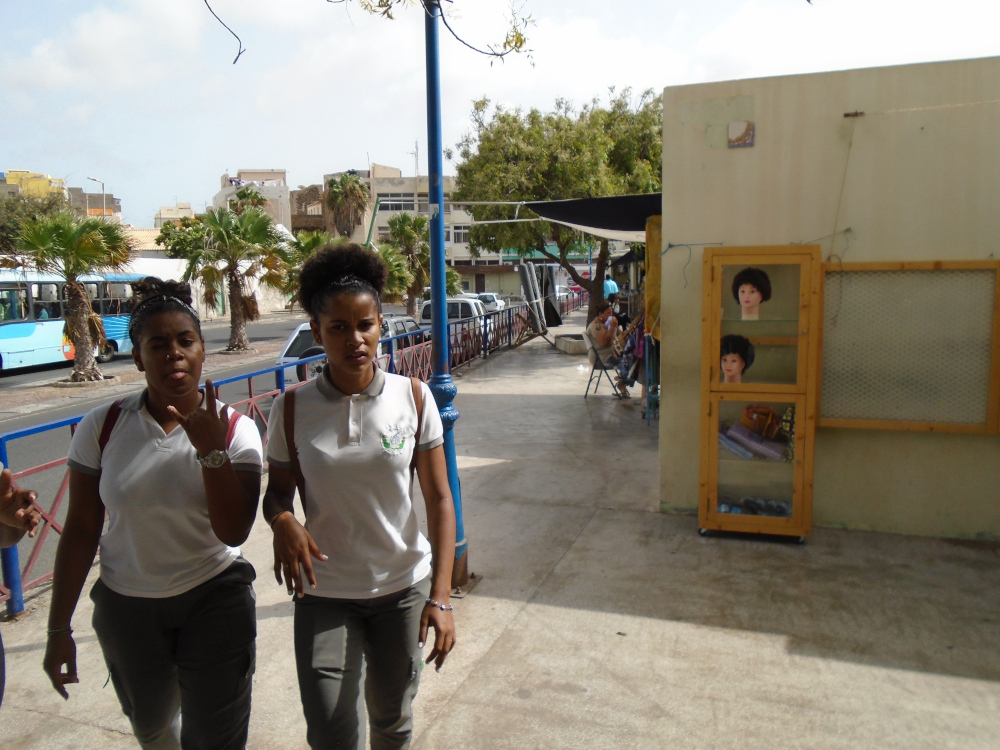By CRISTINA CARLOS
Translated by JETHRO SOUTAR
At school I learned to count—one plus one is two
I learned to multiply—one times one is one
And subtract—one minus me is zero: Nothing!
Because in the playground, I didn’t count
I didn’t figure in games, I didn’t exist
No matter how right I was in the classroom
In the schoolyard the cool boys came first, the cool girls second
And then came me
In recess, I ranked less than zero
School also taught me to read: B for branco, white, which is good
P for pretogues, Black-Portuguese: bad
In history I learned to be ashamed of my own people
Who sold me for mirrors and trinkets
In geography I learned about Portugal
The Europes and Americas
Skipped though Asia and the Middle East
And ran out of time before getting to Africa
That great chunk of lawless land
Run on corruption, rich in rare diseases and tribal wars
Its principal export: slaves!
In biology I studied the animal kingdom but must have missed
The bit about different species of human and races
The animal kingdom, the human species and races
Where do they come in? Biology? The science of the OTHER?
I remember when a classmate proudly spoke of innate superiority
Of the black brain being smaller…
And so he failed, and I didn’t
In sociology I learned I’m the subject of studies:
Teenage single mother;
Juvenile delinquent; fifth-generation immigrant/second-rate citizen…
Every day spent learning, dissecting, labelling, pigeonholing
Out there among my tribe
Here in my neighbourhood
And what if…?—Zero! Nothing! Full stop!
Psychology failed to diagnose me… Because my soul cannot suffer
And I only got one yesterday anyway… So what am I complaining about?
Who would I complain to?
If I’m not a case study, I don’t exist!
Back out into the yard for games I don’t want to play—I don’t count!
I don’t want to be Adriano the monkey, Dad!
Why can’t I be the princess, Mum?
Pay no attention, girl! Study hard! Nobody will mess with you when you’re a doctor!
Speak Portuguese, girl! Even the Angolan gangsters don’t talk Kimbundu!
Miss, he called me names! Why do you get so worked up, Maria?
As a housemaid you’ll only need…
Who wrote this?—Blacks can’t write like that! Prove you didn’t copy! Prove you did it yourself!
Say that again! Speak up!
Right, I’m deducting two marks!
And me/YOU always smiling!
And me/YOU censuring me because after all…
Portugal is not and never has been a racist country
And so to the most important lesson: S is for silence…
Cristina Carlos was born in Angola and grew up in the greater Lisbon suburbs amidst the sounds and smells of the African diaspora. She became interested in Black identity from an early age, and the thesis of her postgraduate degree in rehabilitation and social inclusion was entitled “The color in me.” She is a member of Afrolis, a Lisbon-based association promoting Afro-descendant culture, and an enthusiastic participant in Djidiu, a poetry collective that explores the Black experience in Portugal. The poem published here is taken from Djidiu—A Herança do Ouvido (Djidiu—Heard Heritage), an anthology of Djidiu poems.
Jethro Soutar is a translator of Spanish and Portuguese. He has a particular focus on works from Africa and has translated novels from Equatorial Guinea, Guinea-Bissau, and Cape Verde. He is also editor of Dedalus Africa and a co-founder of Ragpicker Press. Originally from Sheffield in the UK, he now lives in Lisbon, Portugal.




